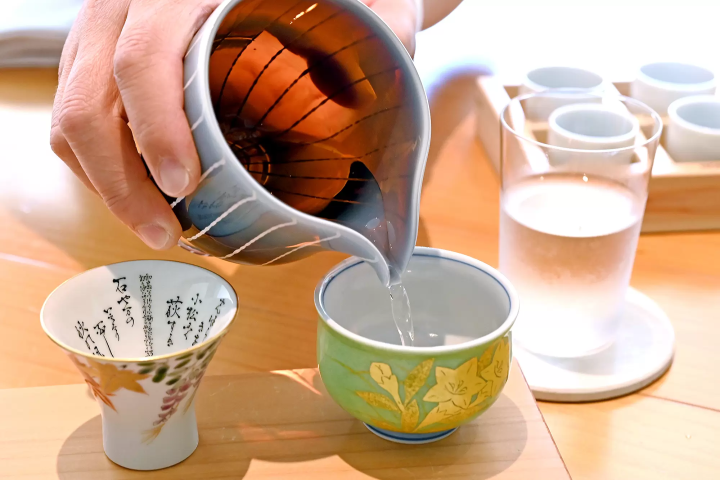Kanazawa Noh Museum: Discover the Fascinating World of Noh Theater

The Kanazawa Noh Museum, located in the heart of Kanazawa, features exhibitions on Noh theater, one of Japan's oldest traditional performing arts. Visitors can actually try on wearing Noh masks and stage costumes! The exhibitions are interactive, introducing visitors to the world of Noh.
Experience Kanazawa's Rich Noh Theater Culture
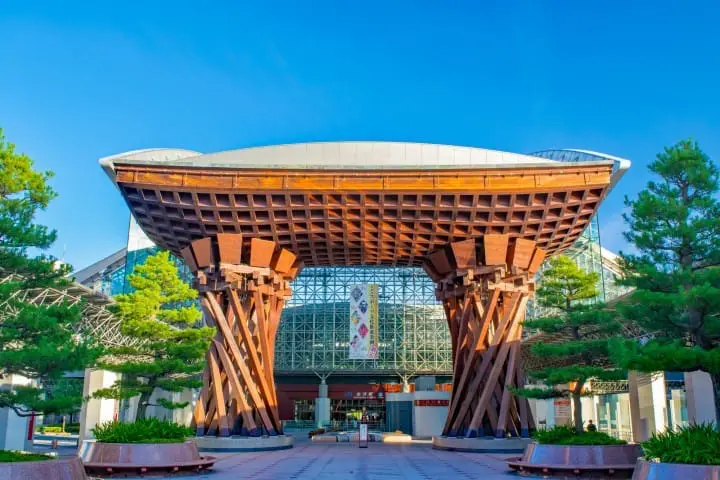
Picture courtesy of pixta
The city of Kanazawa in Ishikawa Prefecture is one of the best places to go if you're interested in Noh theater, one of Japan's prominent traditional performing arts.
The Kanazawa Noh Museum exhibits artifacts related to Noh theater and its history in Kanazawa. Check out the highlights of this facility below and add it to your itinerary in Kanazawa!
Kanazawa and Noh Theater
In the past, ever since its beginnings in the 14th century, Noh has been a stage art favored by the warrior class. In most parts of the country, only the rich warrior class members had the chance to enjoy Noh. However, in Kanazawa, many artisans, gardeners, and merchants were also allowed to enjoy Noh and even learn to perform it.
This was possible because these local craftsmen were the ones creating objects of daily use for the warrior class and they had to be up to date with what their customers liked. The local Noh culture that developed in Kanazawa enjoyed such popularity that the city became known as "the place where you can hear Noh chants in the sky." This is a way to say that everyone was humming Noh songs while going about their daily lives.
The Noh enthusiasts of Kanazawa played a crucial role in keeping the art alive when the warrior class was abolished and Noh lost its wealthy sponsors. The deep connection to Noh theater can be felt everywhere around Kanazawa. For instance, the large gate in front of Kanazawa Station is called Tsuzumi Gate and is modeled after the tsuzumi drums used in Noh performances.
To learn more about Noh theater and Kanazawa's very special connection to Noh culture, how about visiting the Kanazawa Noh Museum? We introduce the features of this facility below.
Kanazawa Noh Museum - An Exciting Encounter with Noh Theater
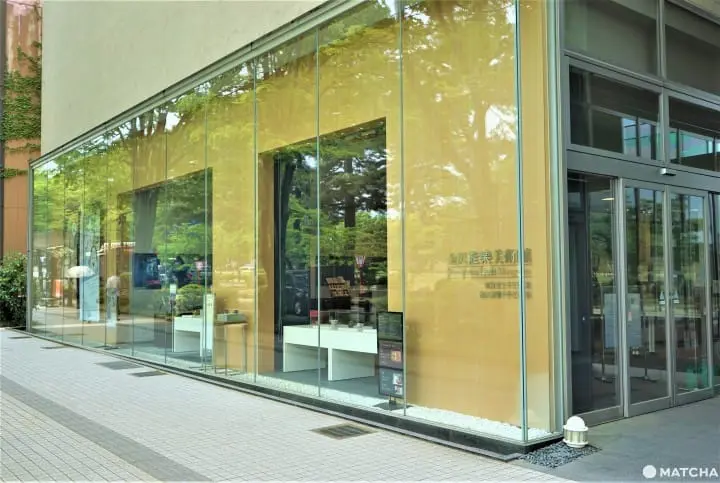
The Kanazawa Noh Theater is located in the heart of the city, right near Kenrokuen Garden and The 21st Century Museum of Contemporary Art, Kanazawa.
The facility introduces the features and history of Noh theater through exhibitions and interactive displays.
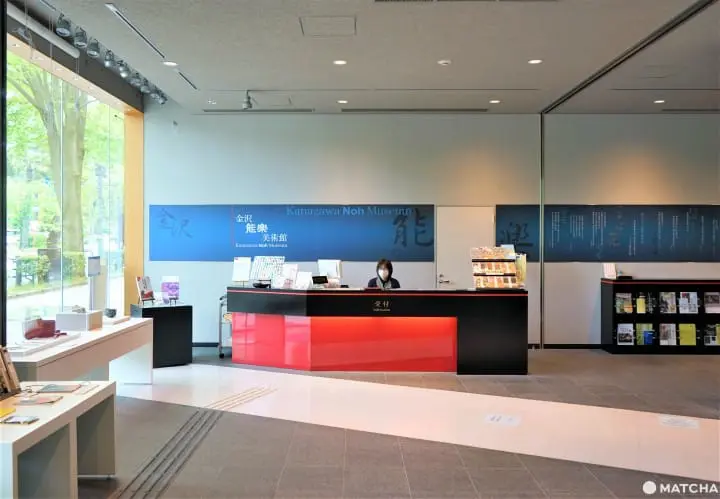
Right from the entrance on he first floor, you'll find yourself surrounded by objects and displays related to Noh theater. The white area on the floor is the contour of a Noh stage. Just by seeing it, you get an image of the size and shape of a Noh stage.
Now, let's take a look at the highlights of each floor in detail.
Interactive Displays! First Floor - Learn about Noh Performance

The exhibits on the first floor of the museum focus on explaining the basics of Noh performance. First of all, take a look at the miniature Noh stage. It was modeled after the Kanazawa Noh Theater stage, which is now located within the Ishikawa Prefectural Noh Theater, less than 10 minutes away from the museum.
In the past, the audience used to sit on the floor in square box seats. It was after the beginning of the 20th century that the seats became the stool seats we now use. This is actually the only aspect that changed about the Noh stage structure in modern times.
The miniature also shows the inside of a Noh stage. It contains a device to create a reverberation effect, ensuring that the actor's voice and the sound of instruments reach all the way to the back seats.
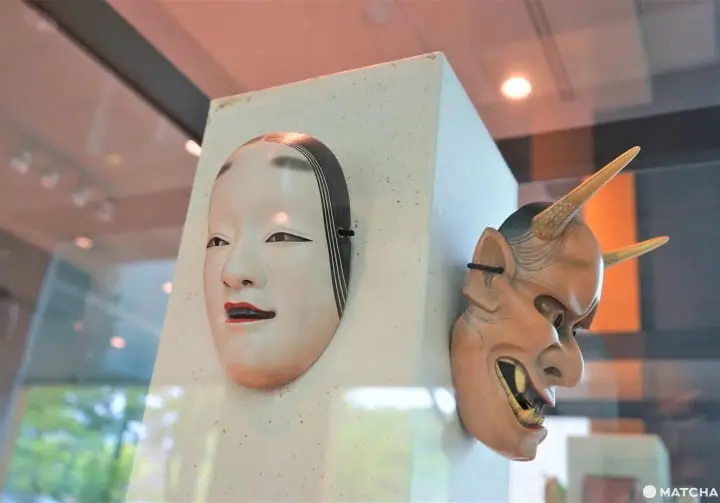
Precious Noh masks are on display on the sides of the room. Take a good look at their features and you'll notice that there are no two alike!
Each mask is meant to express a certain character - from deities and demons to beautiful women and valiant warriors.
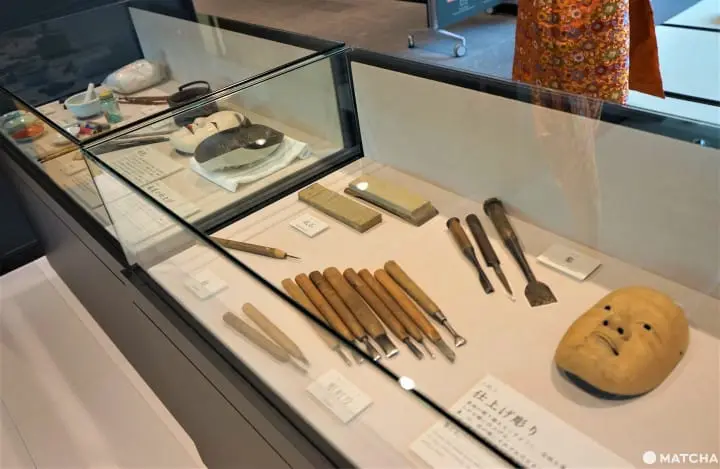
One of the displays shows the entire process of making a Noh mask. A piece of cypress is carved, then whitewash and layers of paint are applied over it.
Even by just taking a look at this display, you'll be able to grasp the painstaking process of turning a piece of wood into a Noh mask with distinctive features that looks as if it had a soul.
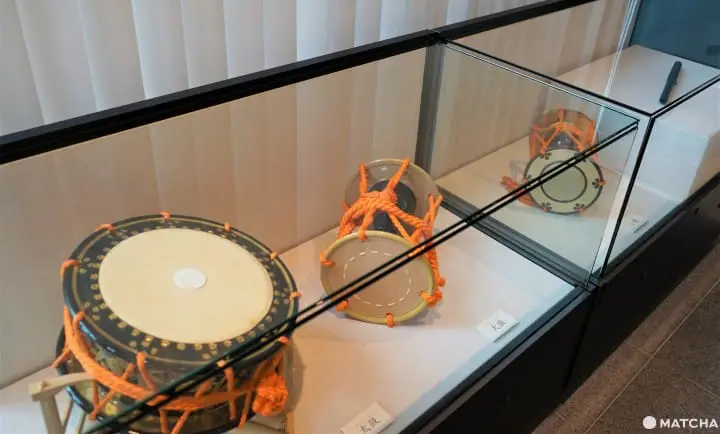
Another corner of the exhibit is dedicated to the four instruments played during a Noh performance: taiko drum, ootsuzumi (large hand drum), kotsuzumi (small shoulder drum), and flute.
With the majority of them being percussion instruments, as you might guess, Noh is an art that relies heavily on rhythm. In fact, many Noh enthusiasts say that they fell in love with this art because of its strong, captivating rhythm.
Put on a Noh Mask! The Noh Experience Corner
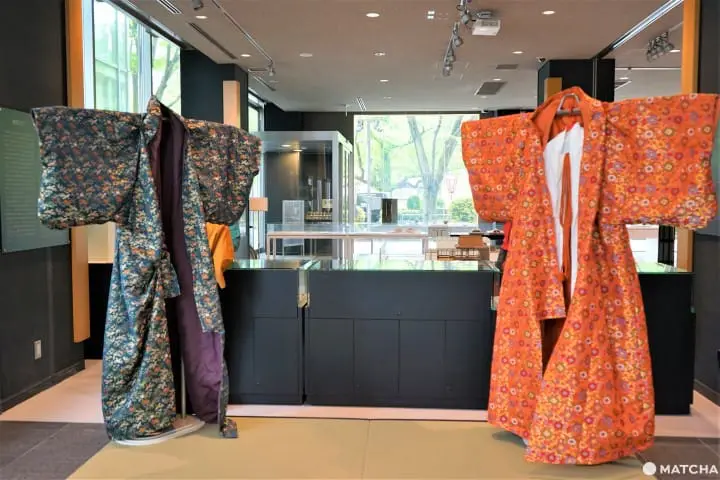
In a corner of the exhibition room, there is a small elevated area where visitors can try on a kimono used in Noh performance.
Noh kimonos are lavishly decorated with golden thread and gorgeous patterns. Like the masks, each kimono is different and meant for a certain role. In other words, the actor won't be wearing a warrior's kimono if he's playing the role of a lady or fairy.
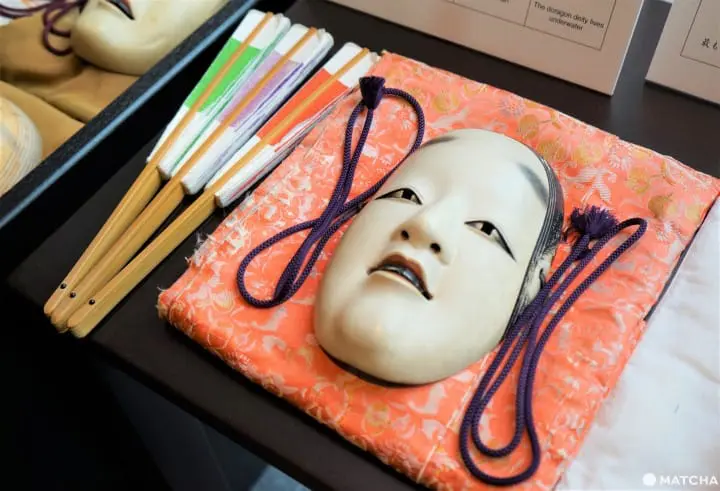
Visitors can also choose from a series of Noh masks to try on. We suggest asking the volunteer staff stationed in this corner for advice to make sure that the mask matches the kimono you're wearing.
You'll most surely be surprised to see how limited is the wearer's field of vision when they put on the mask! Imagine that Noh actors have to walk around and dance on the six square-meter stage while keeping their face (and mask) up straight.
This is actually the reason why Noh is being performed on a special stage with a fixed structure. The four pillars serve as signs for the actors to know at every moment where they stand, making sure that they don't fall off the stage.
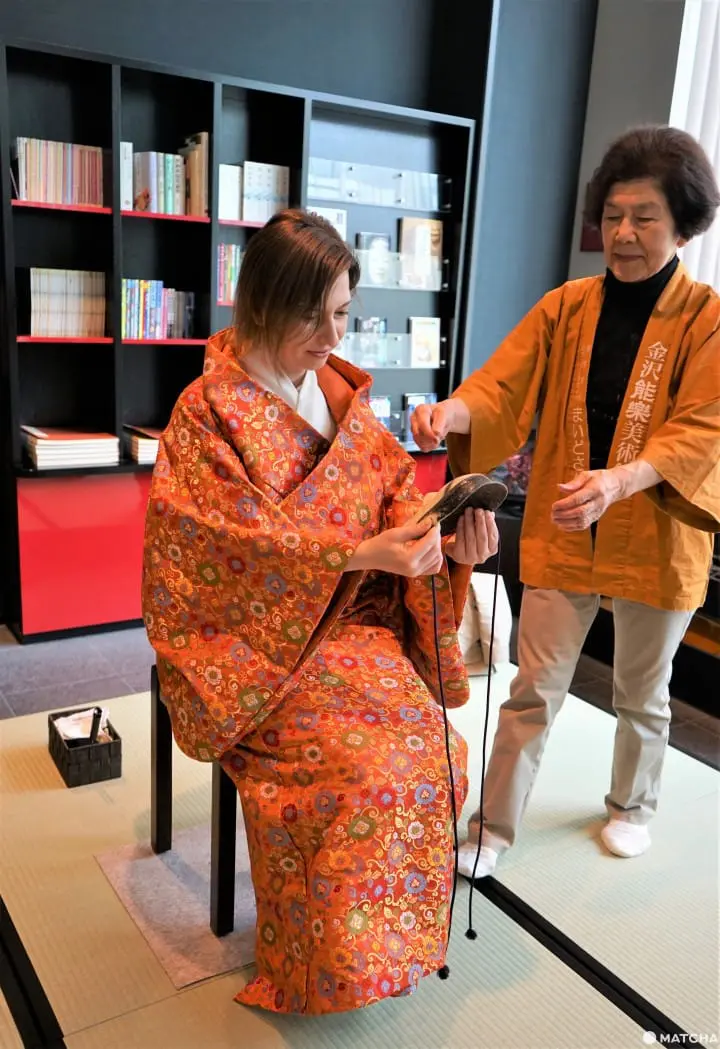
Volunteer staff will assist you in putting on the Noh kimono and the mask. So how about trying them on? The weight of the attire is quite impressive if you think that the actor performs dances and even energetic moves wearing it. You'll get a firsthand insight into what it is like to stand on the Noh stage.
Learn about the History of Noh in Kanazawa - Second Floor Exhibition Room
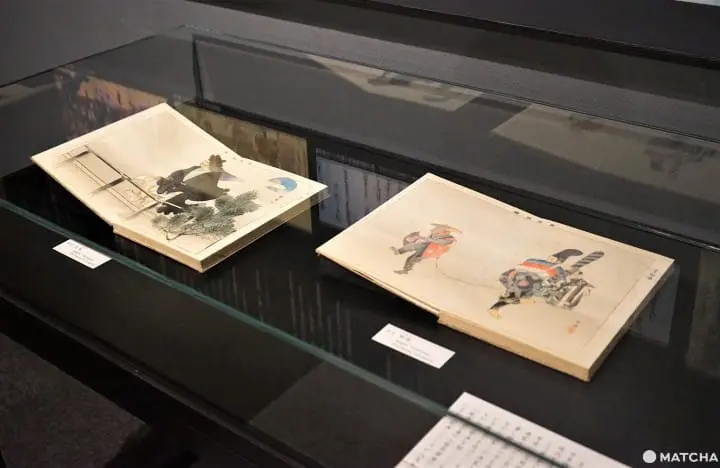
The second floor of the museum is dedicated to temporary exhibitions. The Kanazawa Noh Museum owns an impressive collection of stage attire, Noh and Kyogen masks, objects used on the stage, as well as old manuscripts and documents that reveal the history of traditional stage arts in Japan.
Temporary exhibitions are held regularly and focus on a certain theme. When we visited, an exhibition dedicated to the art of Kyogen was being held.
Kyogen is a comical performing art that developed at the same time with Noh. It is performed by actors who specialize in Kyogen roles.
While Noh plays tend to be serious and dignified, taking on historical and mythological themes, Kyogen brings laughter, brightening the mood for audiences.
The illustrations on display are from "Nogakuzue" ("Album of Noh Illustrations"), a collection of images from the latter half of the 19th century, created by famed Noh illustrator Tsukioka Kogyo (1869-1927). They convey the humor of Kyogen plays through vibrant colors.
The exhibition of Kyogen masks featured masks frequently used on stage - from benevolent deities to animals such as foxes and monkeys.
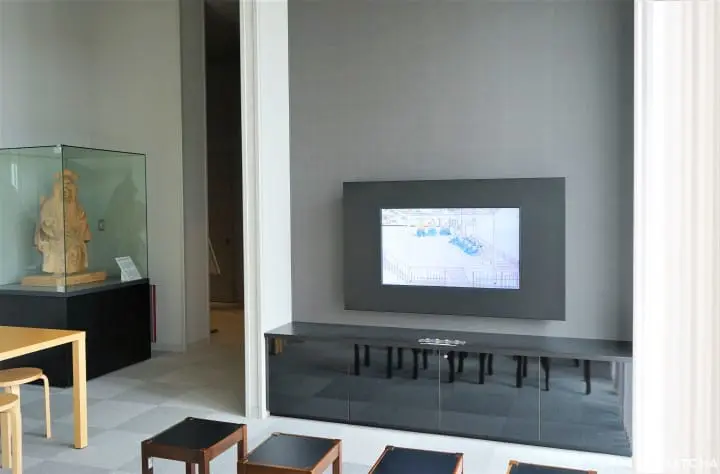
Outside the exhibition room, there is a video projection area. Visitors can watch short videos on the history of Noh and Kyogen, as well as videos that explain the very special place that Noh has in Kanazawa culture.
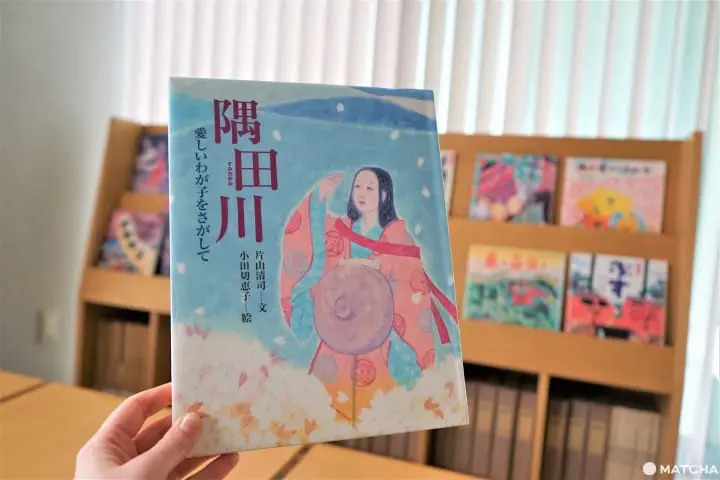
There is even a corner with illustrated books showing the storyline of famous Noh plays.
The book shown in the picture above is about "Sumidagawa," the story of a woman who wandered the country in search for her child who had been abducted. She finds the child's grave and even sees its ghost for an instant. It's a heartbreaking story that moves audiences to tears every time it is performed.
Pick up Noh-themed Souvenirs
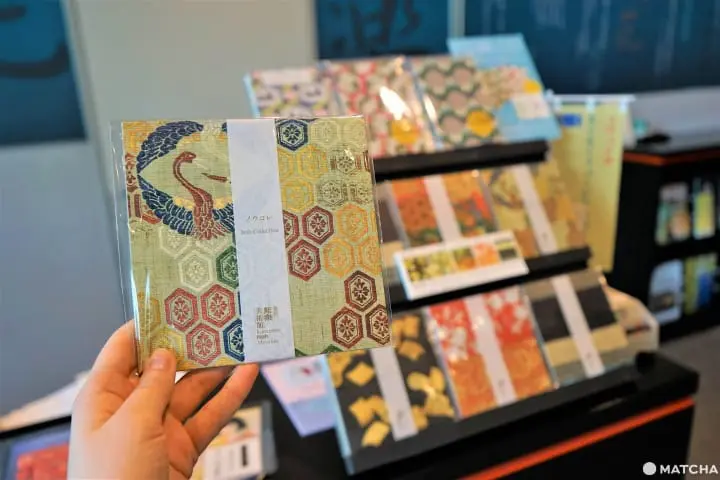
Before you leave, drop by the museum shop to pick up some memorabilia of your visit. The beautiful Noh-themed origami paper has a design inspired by the patterns of the kimonos used in Noh. It can be used for origami or to decorate notebooks and other objects.
The cute badges with images of Noh masks are also popular items, especially among those who want to collect them. Other souvenirs include accessories, postcards, and other Noh-related objects.
Watch Noh in Kanazawa!
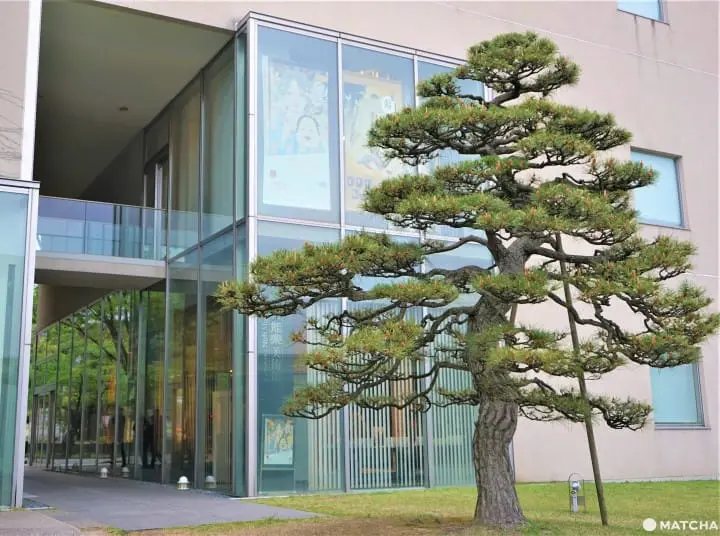
The south entrance to the Kanazawa Noh Museum facing The 21st Century Museum of Contemporary Art, Kanazawa
If you'd like to actually watch a Noh performance, how about checking the program of the Ishikawa Prefectural Noh Theater, which is located just about 10 minutes away from the museum?
Noh performances with English guidance, accompanied by workshops, are being held regularly at this facility. An actual Noh performance will surely remain deeply ingrained in your memory, especially after you've learned the basics about this art at the Kanazawa Noh Museum.
The culture of Kanazawa is deeply connected to Noh theater, and a visit to the Kanazawa Noh Museum will show you where to look in order to notice this connection. It provides an exciting encounter with the rich culture of Noh theater.
Ramona, English content editor at MATCHA since 2016, has been practicing ikebana flower arrangement (Ikenobo School) and tea ceremony (Omote Senke) since 2012. She arrived in Japan in 2012 as a graduate student with a focus on Japanese literature and performing arts. As a travel editor and writer, Ramona has visited and documented 40 of Japan's prefectures with a focus on art, history, traditional Japanese crafts, and performing arts.













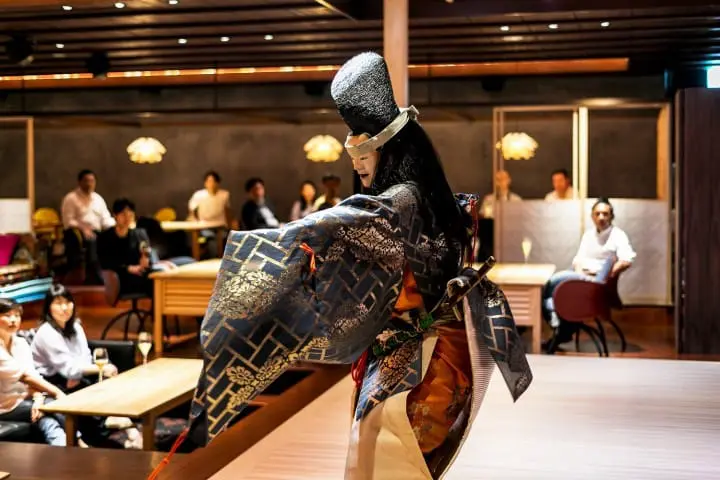
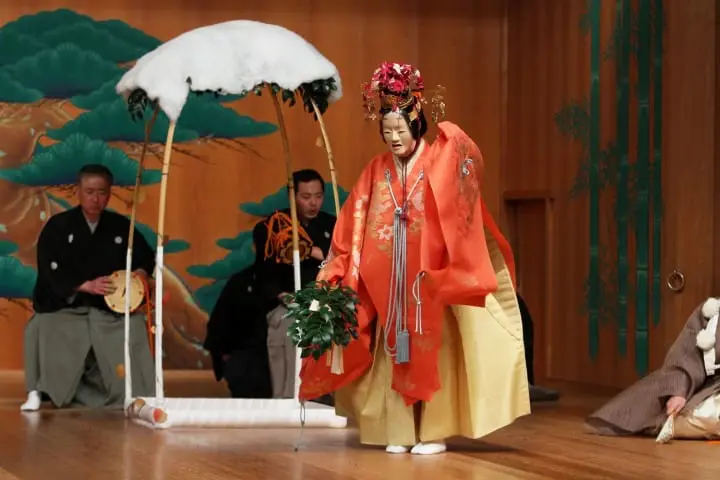


























![[Shinjuku Nishiguchi HALC] About the d Point Campaign](https://resources.matcha-jp.com/resize/720x2000/2026/02/14-258714.webp)
